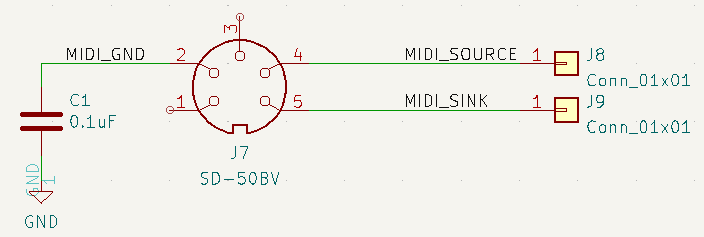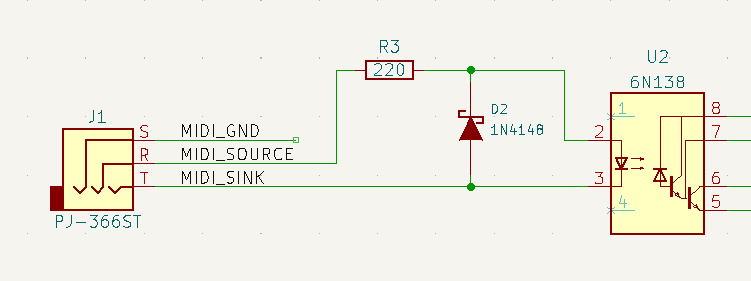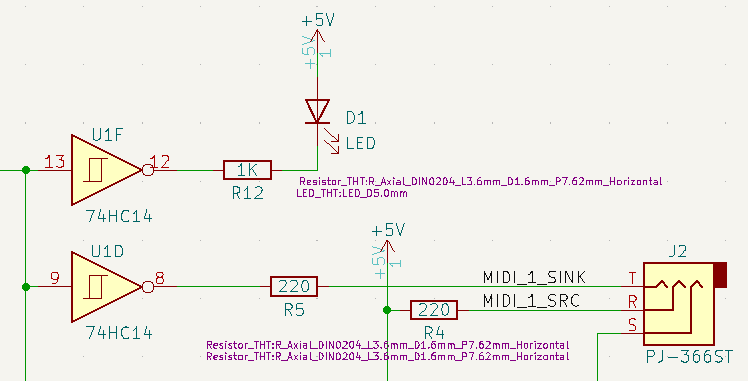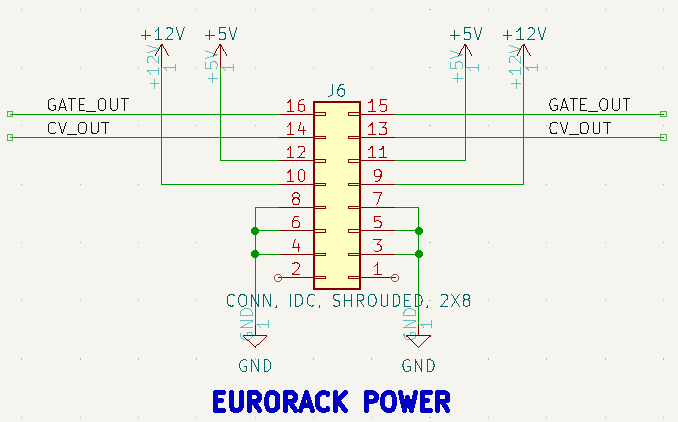Difference between revisions of "ER-MIDI-THRU"
Jump to navigation
Jump to search
Blwikiadmin (talk | contribs) (→Design) |
Blwikiadmin (talk | contribs) (cONNECTORS) |
||
| Line 25: | Line 25: | ||
[[file:ER-MIDI-THRU_MIDI-OUT_TRS-A.PNG]] | [[file:ER-MIDI-THRU_MIDI-OUT_TRS-A.PNG]] | ||
| + | |||
| + | == Connectors== | ||
| + | |||
| + | [[FILE:ER-MIDI-THRU_J6_EURORACK-PWR.PNG]] | ||
== Daughtercard == | == Daughtercard == | ||
Revision as of 09:40, 4 December 2022
Features
- MIDI In on DIN-5 or 3.5mm TRS Type A
- 4 Channel MIDI outputs on 3.5mm TRS Type A
- Activity LED
- Front Panel is 6 HP wide (30mm)
- Daughtercard is 28mm wide for easy installation into rack
- 3U tall
- Eurorack 2x8 power jack
- Uses 5V only
Design
- MIDI In DIN
- MIDI In TRS-A
- MIDI Out TRS-A
Connectors
Daughtercard
Reference Documents
The SOURCE provides the power, whether 3.3v or 5v, to power an LED in the optocoupler in the receiving device, while the SINK pulls that power to ground whenever there is data to be transmitted. DIN MIDI Connector In the good old DIN5 MIDI Connectors, 3 out of the 5 pins are used. Pin 2 is used as GROUND, Pin 4 is used as the current SOURCE, while Pin 5 is used as the current SINK. Type A The Type A TRS connection is the official standard adopted by the MIDI Association. The Tip is the Sink (pulls the data line down) and the Ring is the Source.





